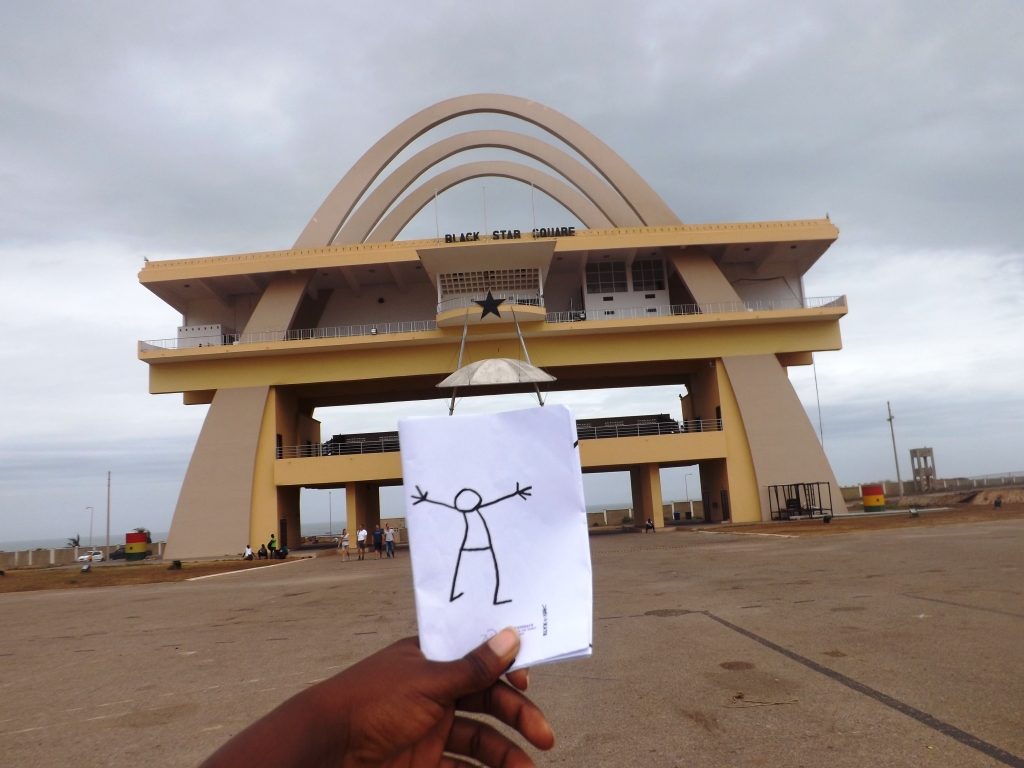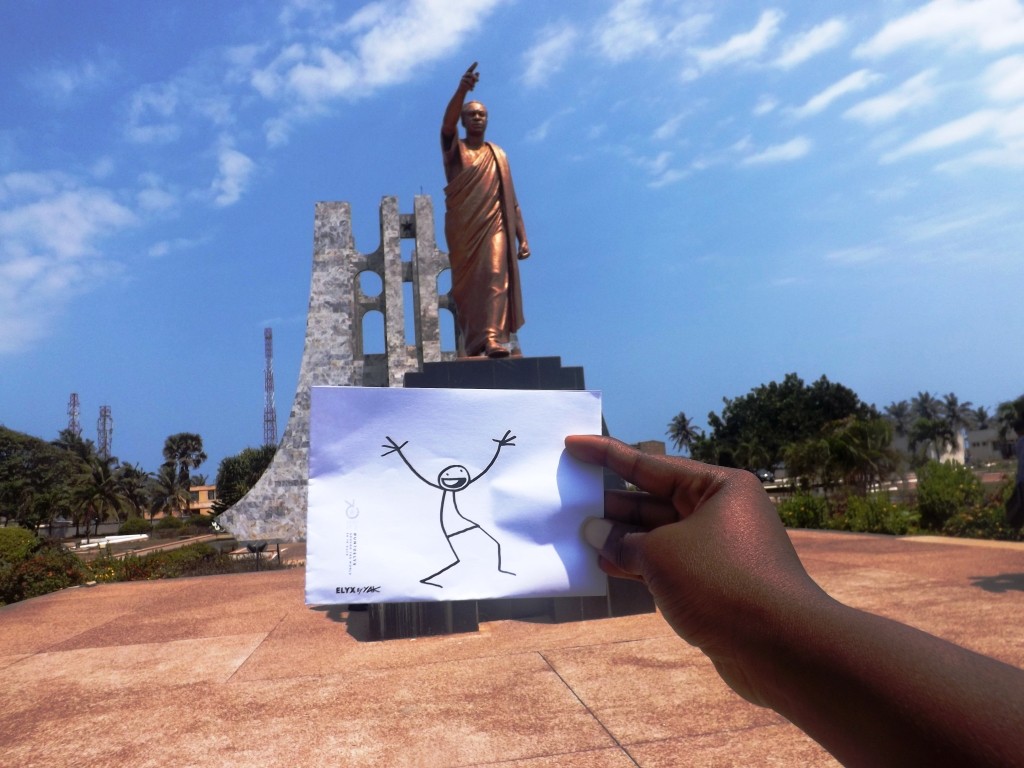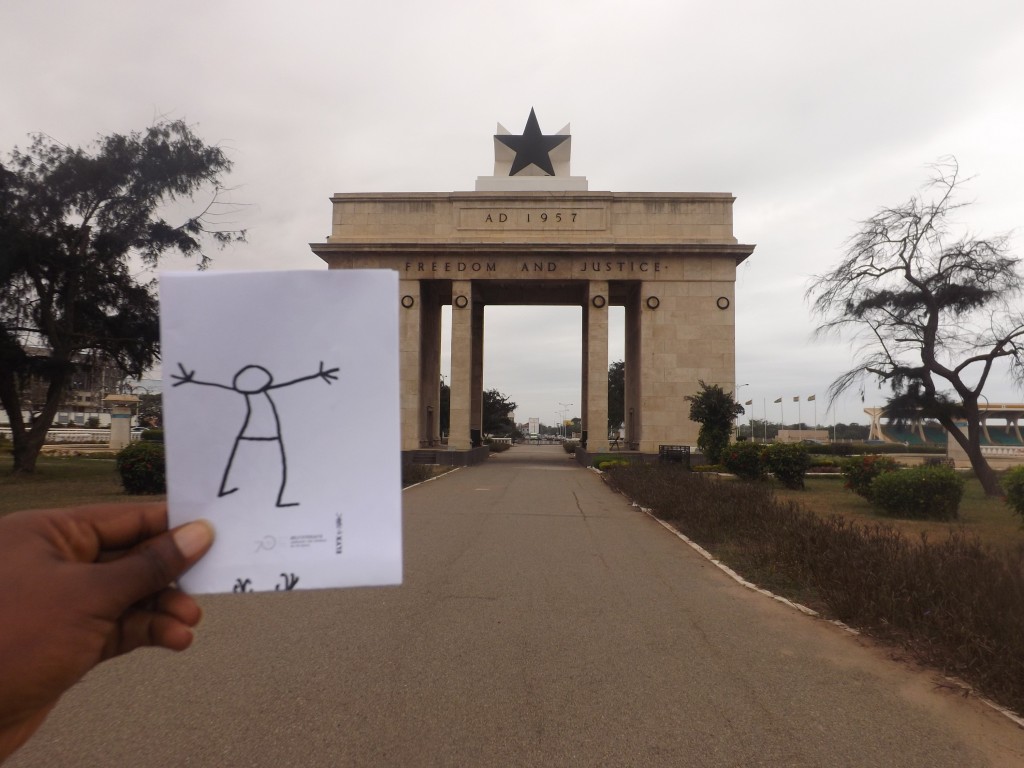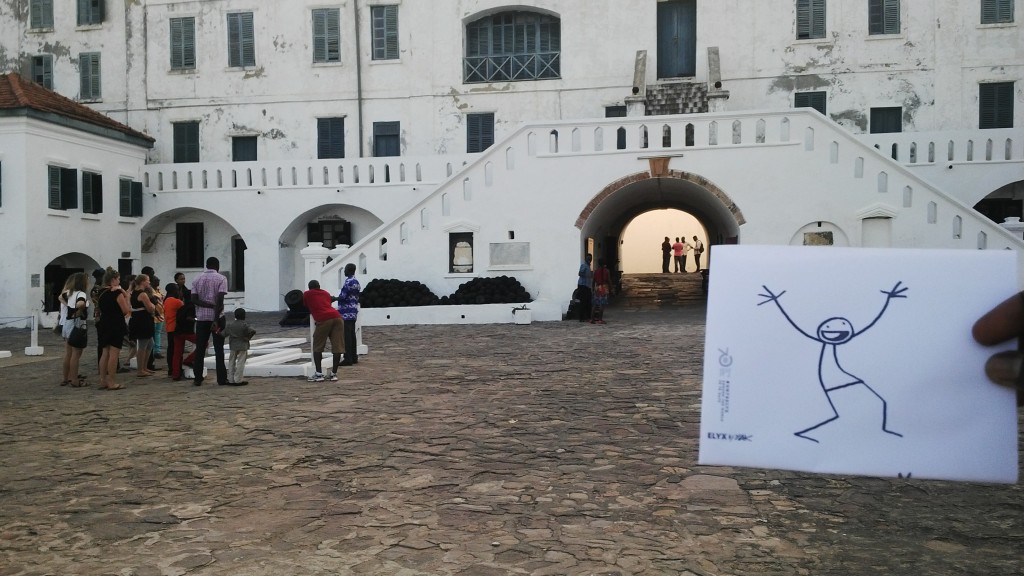Elyx has arrived in Ghana, a republic located in West Africa. The UN digital ambassador was immediately welcomed by UNIC and guided through the colourful and lively streets of Accra. As they explain, the country is endowed with abundant natural and mineral resources such as cocoa, oil, natural gas, gold and diamonds. This together with its democratic political system and the absence of major crises and conflicts has led to growing economic prosperity and has made Ghana a regional power in West Africa. However, the country is far from reaching its full potential: it still ranked 138th out of 187 countries in the 2014 Human Development Report and is classified as a low-income, food-deficit country.
Ghana hosts 26 UN entities, some of them also serving as regional or sub-regional offices. From September 2014 to June 2015 its capital city Accra also hosted UNMEER headquarters, which allowed thousands of health workers and supplies to freely circulate back and forth between Ghana, which has not been affected by Ebola, and hard-hit Guinea, Liberia and Sierra Leone. Elyx is really impressed by Ghana’s solidarity!
-
Elyx is so excited to see the statue of Dr. Kwame Nkrumah! (Photo: UNIC/Cynthia Prah)
- UNIC Accra colleagues first bring Elyx to a must-see, the city’s statue dedicated to Dr. Kwame Nkrumah. He led the country to independence from Britain in 1957, setting an example for other African countries, which were at the time under colonial rule. This gained the country the nickname ‘Black Star of Africa’. Dr. Kwame Nkrumah also served as first prime minister and president of the Republic of Ghana. The monument is located on the Polo Grounds in Accra, on the very spot where Nkrumah stood to declare its country’s independence on 6 March 1957 in a very famous speech. Not only did he become a symbol of freedom worldwide, but he also exhorted African countries to follow Ghana’s lead and unite through a Pan-African organism, which he co-founded, the Organisation of African Unity, the predecessor of the African Union.
-
The Black Star Square or Independence Square is a major symbol of the fight for independence as well as the second-largest public city square in the world.(Photo: UNIC/Cynthia Prah)
- Elyx then meets ILO staff who bring Elyx to Cape Coast Castle, sadly famous for the role it played in holding slaves before the ocean’s crossing within the framework of the trans-Atlantic slave trade. The beautiful castle certainly dazzles Elyx but its sight also makes the ambassador think about the speech delivered by Secretary-General Ban Ki-moon on 2 December 2014, the International Day for the Abolition of Slavery.
Slavery is a major scourge, still affecting almost 21 million women, men and children, ILO colleagues tell the UN digital ambassador. Contemporary forms of slavery include trafficking in persons, sexual exploitation, child labour, forced marriage and the forced recruitment of children for use in armed conflict. For this reason, ILO teamed up with artists, athletes and advocates to launch the End the Slavery Now campaign.
Elyx leaves the Castle with a heavy heart, but in a way, the ambassador is also delighted to learn that the work done by the UN, its funds and agencies has a huge impact on Ghana’s progress. UNDP, for example, strives to help Ghana achieve the Millennium Development Goals and the outcome so far is quite promising, especially as far as the first two goals are concerned. As UNDP colleagues tell Elyx, Ghana will be the first Sub – Saharan African country to halve extreme poverty by 2015 and the country is on track to eradicate extreme hunger and achieving universal primary education.
Elyx learns that a major obstacle to the country’s progress is the North-South divide. Northern regions are drought-prone and more vulnerable to climate change, hence affected by poverty and food insecurity, IFAD reports. Agriculture is the country’s leading sector but smallholder farmers are hit by low productivity and poor market infrastructure. That is why WFP supports and offers training through the Purchase for Progress (P4P) program, whose aim is to improve the quality and quantity of their production.
Elyx has greatly enjoyed meeting the people and UN staff of Ghana and has been heartened by the progress it’s made toward the Millennium Development Goals. Elyx also can’t wait to see what changes take place as countries work together on the Sustainable Development Goals (SDGs).
FAO in Ghana
IFAD in Ghana
UNAIDS in Ghana
UNDP in Ghana
UNESCO in Ghana
UNEP in Ghana
UNHCR in Ghana
UNFPA in Ghana
UN-HABITAT in Ghana
UNIC in Ghana
UNICEF in Ghana
UNIDO in Ghana
IFC in Ghana
IMF in Ghana
IMO in Ghana
IOM in Ghana
UNODC in Ghana
UNU-INRA in Ghana
UN Women
WFP in Ghana
WHO in Ghana




